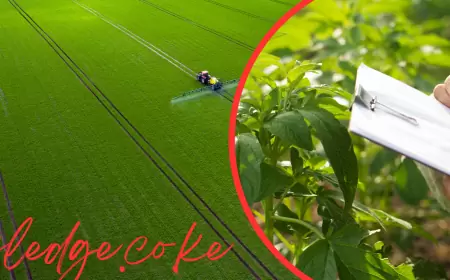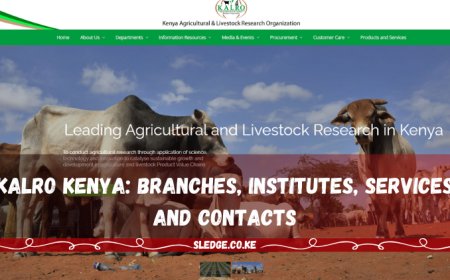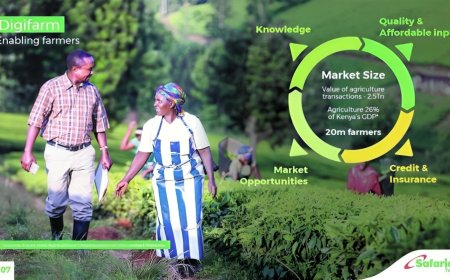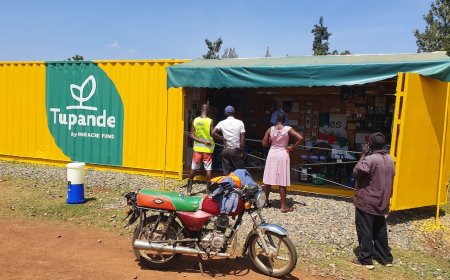Complete Guide to KCSE 2024 Registration: Requirements, Fees, and Key Information
Discover everything about KCSE 2024 Registration - key dates, process, fees, and essential requirements for a successful registration. Start preparing now!

The Kenya Certificate of Secondary Education (KCSE) is more than just an academic milestone; it's a pivotal juncture that shapes the future of Kenyan students. As we approach 2024, the aura of anticipation is palpable among students, educators, and parents alike. This year, the KCSE registration process undergoes notable changes, emphasizing the Kenyan education system's dynamism and its adaptation to contemporary needs.
Imagine being a student waiting eagerly to register for the exams that will set the course of your future. The KCSE is not just a test; it's a gateway to higher education, a career, and, ultimately, a fulfilled life. For educators and parents, it represents a culmination of efforts in molding young minds and guiding them to this critical phase. Therefore, understanding the intricacies of the KCSE 2024 registration is imperative.
This year's registration process, commencing on January 29 and concluding on March 29, 2024, stands out for its stringency regarding deadlines. The Kenya National Examinations Council (KNEC) has been explicit: there will be no room for late registrations. This decision underlines the council's commitment to a disciplined, efficient, and fair examination process. It's a clear message to all stakeholders: timely preparation and adherence to guidelines are non-negotiable.
The importance of this period cannot be overstated. It's not just about filling out forms and paying fees. It's about ensuring eligibility, preparing documentation, and understanding the nuances of a process that lays the foundation for one of the most significant exams in a Kenyan student's life. It's about schools and parents working in tandem to ensure that every eligible candidate is registered within this tight window, leaving no room for errors or delays.
READ ALSO:Why Fuliza Limit Decreases to 0 After Opting Out & Tips For Increasing Your Fuliza Limit In 2024
Overview of KCSE 2024 Registration
The Kenya Certificate of Secondary Education (KCSE) 2024 registration marks a significant phase for students across Kenya. This period is not just a procedural necessity; it's the first formal step toward academic and professional aspirations. The 2024 registration period, set from January 29 to March 29, 2024, is a crucial window that demands attention from all stakeholders in the education sector.
Understanding the Timeline
January 29 to March 29, 2024: This specific timeframe is critical. The Kenya National Examinations Council (KNEC) has set these dates precisely, leaving no room for extensions. The importance of adhering to this timeline cannot be overstated. It's a period where meticulous planning and execution come into play. Schools and students must ensure that all preparations for registration are complete well before the deadline. This is not just about meeting a date; it's about guaranteeing readiness for what lies ahead.
The Role of Schools and Principals
School principals and administrators play a pivotal role in this process. They are not just facilitators but crucial cogs in ensuring that every eligible student is registered. This involves verifying student details, ensuring that all necessary documentation is in order, and liaising with KNEC to guarantee a smooth registration process. The responsibility is immense, as is the need for accuracy and efficiency.
The Strict Deadline Policy
The KNEC's strict no-extension policy for the registration period is a significant departure from previous years. This change underscores the council's commitment to maintaining a stringent, disciplined approach to the examination process. The message is clear: late registration is not an option. This policy is in place to ensure fairness and uniformity in the examination process. It also serves as a vital lesson in responsibility and time management for students, preparing them for future endeavors where deadlines are sacrosanct.
The Significance of the Registration Period
Why is this period so critical? It's not merely about getting names on a list. It's about setting in motion the administrative and logistical wheels that ensure a fair, efficient, and transparent examination process. This registration period is the bedrock upon which the entire KCSE examination is built. It determines the number of candidates, the allocation of resources, and the planning of the examination schedule. In a broader sense, it reflects the nation's commitment to upholding the integrity and quality of its education system.
Registration Requirements and Process for KCSE 2024
Detailed List of Requirements
- Eligibility Criteria: The primary requirement for KCSE registration is that candidates must be enrolled in a secondary school recognized by the Ministry of Education. This includes both regular and private candidates.
- Documentation: Candidates need to present valid identification documents. This could be a national ID for older students or a birth certificate for younger ones. For private candidates, additional documentation, such as a letter from the Sub County Director of Education or a previous school head, may be necessary.
- Previous Academic Records: Candidates must have completed their Kenya Certificate of Primary Education (KCPE) or its equivalent. This ensures that they have the foundational knowledge required for the secondary curriculum.
- Special Needs: Candidates with special needs should provide relevant information to ensure appropriate accommodation during the examination.
Step-by-Step Guide to Using the KNEC Portal for Registration

- Accessing the Portal: The first step is to visit the KNEC portal. This can be done by going to https://www.knec.ac.ke/our-portals/.
- Candidate Registration: On the portal, you will find an option for 'Candidate Registration'. Select this to begin the process.
- Filling Required Fields: The registration form will require personal information, educational background, and special needs (if any). It's crucial to ensure that all information entered is accurate and up-to-date.
- Completion and Confirmation: After filling in the necessary details, review the data for accuracy before submitting. Once submitted, candidates should receive a confirmation indicating successful registration.
- Troubleshooting: In case of any difficulties or errors during registration, candidates can contact KNEC through the contact details provided on their website. It's essential to address any issues promptly to avoid delays.
Importance of Accurate and Timely Registration
The accuracy and timeliness of registration are paramount. Inaccuracies can lead to complications during the examination period, such as misprinted examination papers or issues with examination centers. Likewise, late registration is not an option due to KNEC's strict deadline adherence. Therefore, candidates and schools must approach this process thoughtfully and precisely.
Registration Fees and Payment Details for KCSE 2024

Comprehensive Breakdown of Registration Fees
- Standard Registration Fee: This fee is applicable to all candidates and covers the basic costs associated with the examination process. The amount varies yearly, so it's essential to check the latest fee structure on the KNEC website or through official school channels.
- Additional Subject Fees: Candidates opting for extra subjects outside the standard curriculum might incur additional fees. These fees are subject-specific and are calculated per subject.
- Late Registration Penalty: While the KNEC has emphasized that late registrations will not be accepted for the 2024 cycle, in scenarios where exceptions are made, a late registration fee may apply. This serves as a deterrent against delays in the registration process.
- Special Needs Provision Fee: For candidates requiring special accommodations due to disabilities or other needs, there might be an additional fee to cover the costs of these provisions.
Methods of Payment
- School-Based Payments: In most cases, payments are made through the candidate's school. Schools collect the fees from students or parents and then make a bulk payment to KNEC.
- Direct Bank Deposits: In some instances, KNEC may allow or require direct payments into their bank account. This method is typically detailed in the registration instructions, including the bank details and the payment reference requirements.
- Mobile Money Transfer: Depending on KNEC's current policies, mobile money transfers (such as M-Pesa) might be an option. If available, this method offers convenience but requires careful entry of payment details to avoid errors.
KNEC bank accounts are:
- National Bank of Kenya: Account number 0100160314300
- Kenya Commercial Bank: Account number 1116686937
- Equity Bank: Account number 0470294988491
- Co-operative Bank: Account number 01136030120308
Tips to Avoid Common Mistakes
- Early Payment: To avoid last-minute rushes and potential system overloads, make payments well before the deadline.
- Accurate Information: Ensure that the candidate's name and registration number are accurately referenced in the payment.
- Receipts and Confirmation: Always keep receipts or confirmation messages of payment. These may be required for verification by the school or KNEC.
- Follow Official Channels: Always use the payment methods specified by KNEC or the school. Avoid unofficial channels that may lead to fraud or unrecognized payments.
Additional Important Information for KCSE 2024 Registration
Private Candidate Registration Guidelines
- Eligibility for Private Candidates: Only some people enrolled in a formal school setting. For such individuals, registering as private candidates is an option. To qualify, they must have completed their Kenya Certificate of Primary Education (KCPE) or equivalent at least three years prior.
- Documentation for Private Candidates: Private candidates need to provide proof of their educational background, such as a KCPE certificate or its equivalent. Additionally, they require a confirmation letter from the Sub County Director of Education or a former head teacher, especially for practical examinations.
- Registration Process for Private Candidates: The process is similar to that for regular candidates but may involve additional steps like obtaining a letter of introduction from local educational authorities.
- Deadline for Private Candidate Registration: The deadline is usually set a bit earlier than that for regular candidates. It’s crucial to check the specific dates and adhere to them strictly to avoid missing the registration window.
Confirming Registration and Handling Issues
- Verification of Registration: After completing the registration process, it's essential to verify that the candidate’s details are correctly captured. This can be done through the KNEC portal or, in some cases, via SMS services provided by KNEC.
- Addressing Registration Discrepancies: In case of any discrepancies or errors in the registration details, it’s vital to contact KNEC or the school's examination officer immediately. Timely correction of these details is crucial to avoid problems during the examination period.
- Communication with KNEC: Keeping open lines of communication with KNEC is essential. Whether it's for clarification, troubleshooting, or updates, candidates and schools should use the official contact channels provided by KNEC to get accurate and timely information.
Importance of Adhering to Guidelines
The KCSE is a significant examination of Kenya’s education system, and its integrity is paramount. Strict adherence to the registration guidelines, deadlines, and processes ensures the fairness and credibility of the exams. It also reflects a candidate's responsibility and preparedness for this critical academic milestone.
READ ALSO:2024 ECDE Teachers Employment in Kenya: Everything you need to know
Frequently Asked Questions (FAQs)
What are the Key Dates for KCSE 2024 Registration?
- The registration period starts on January 29 and ends on March 29, 2024. This strict deadline is set by the Kenya National Examinations Council (KNEC). It must be adhered to by all candidates and schools.
Can I Register as a Private Candidate?
- Yes, private candidate registration is available. Eligible individuals must have completed their KCPE or equivalent at least three years prior and provide the necessary documentation.
How Do I Confirm My Registration Details Are Correct?
- Candidates can verify their registration details through the KNEC portal or via SMS services, if available. It’s crucial to ensure all information is accurate to avoid issues during the exam.
What Happens if There’s an Error in My Registration Details?
- In case of errors or discrepancies, contact KNEC or your school’s examination officer immediately for corrections. Timely resolution of these issues is essential.
Are There Additional Fees for Late Registration?
- For the 2024 cycle, KNEC has emphasized a strict no-late-registration policy. This highlights the importance of adhering to the set registration period.
Conclusion
The KCSE 2024 registration process is a foundational step in the journey toward this critical academic milestone. It demands meticulous attention to detail, adherence to deadlines, and a thorough understanding of the requirements. The role of the Kenya National Examinations Council (KNEC) in setting clear guidelines and deadlines underscores the importance of discipline and preparation in the academic journey of Kenyan students.
As candidates and educators embark on this process, it's essential to approach it with the seriousness and precision it deserves. The registration period is not just a procedural formality; it's a commitment to the integrity and excellence of Kenya’s education system.
In conclusion, by following the detailed guidelines, understanding the requirements, and adhering to the timelines, candidates can ensure a smooth and successful registration for the KCSE 2024. This preparation not only sets the stage for the examinations but also instills values of responsibility and meticulousness, which are invaluable in academic pursuits and beyond.
With this comprehensive guide, candidates, educators, and guardians are well-equipped to navigate the KCSE 2024 registration process, paving the way for a successful examination experience.












































































